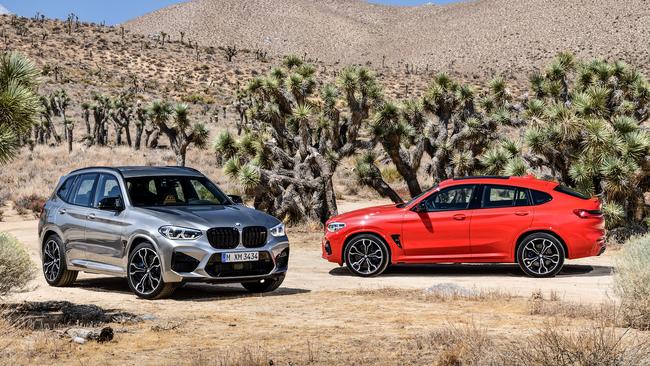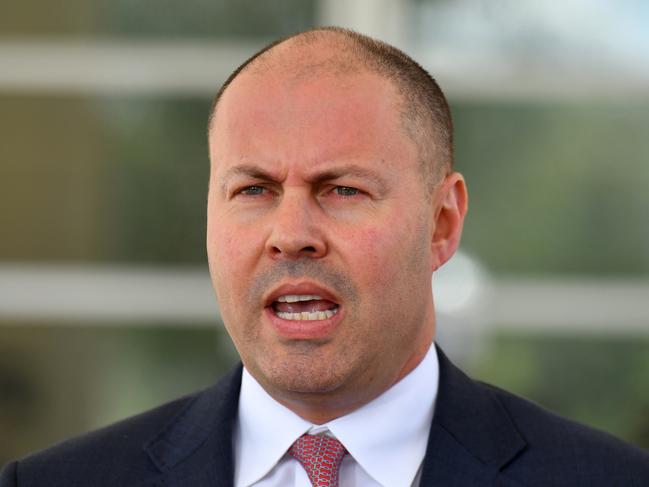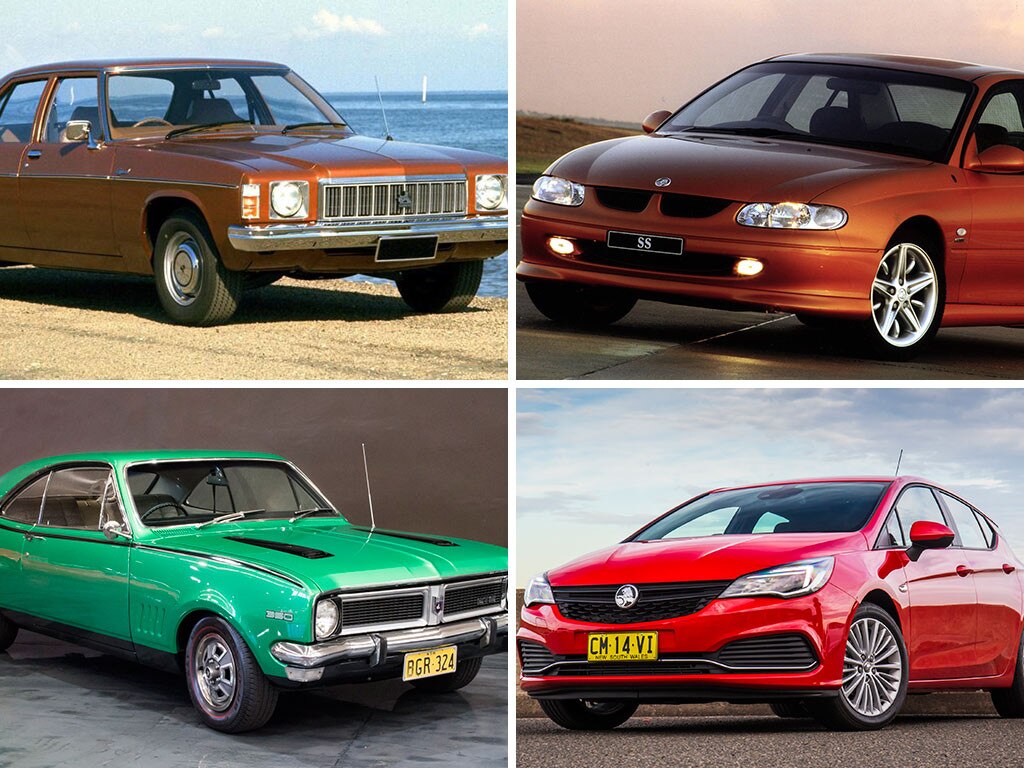Drop luxury car tax, Treasurer Josh Frydenberg told after Holden’s demise
Josh Frydenberg is refusing to abolish the tax on imported vehicles priced at over $67,500.

Josh Frydenberg is refusing to abolish the luxury car tax that forces Australians to pay thousands of dollars more on imported vehicles priced at more than $67,500 — even though the tariff was set up to protect Holden and locally made cars.
The tax raises $675m for the federal government and means buyers pay thousands more for a $90,000 imported brand.
Liberal MPs derided the luxury car tariff on Tuesday as a “bad tax” designed to protect a domestic motor industry that would no longer exist after General Motors announced Holden’s operations in Australia would be wound up by June.

The MPs conceded the budget also needed to be considered when removing the tax, as the government cautions it will struggle to achieve its promised surplus of $5bn for this financial year.
The Australian Taxation Office says the luxury car tax on a vehicle valued at $88,000 (including GST) that did not qualify as fuel-efficient would be $6142 on the sale of the car. The tax is paid by car dealers and passed on to consumers.
The LCT was introduced at the same time as the goods and services tax in 2000, ostensibly as a measure to protect domestic car manufacturers such as Holden.
Liberal MP Tim Wilson, who chairs parliament’s standing committee on economics, said he was a “big fan” of wholesale tax reform. “Removing the luxury car tax could play a simple but important part,” he said.
The Treasurer was unmoved, telling The Australian: “The government has no plans to phase out the luxury car tax.”
Other Liberal MPs Craig Kelly, Jason Falinski and James Paterson said it was a tax they would like to abolish.
Senator Paterson singled out the 5 per cent tariff on cars imported from countries with which Australia did not have trade deals.
“It’s a bad tax,” Mr Kelly said. “Once we get that budget back to surplus, it should be one of the first things we should be looking to get rid of.”
Senator Paterson added: “These measures were designed to protect a car manufacturing industry which has long since ceased to exist. They never made economic sense, and today it just means more expensive cars for Australian consumers. Axing them as soon as the budget allows it would reduce costs and improve the quality, safety and efficiency of our car fleet.”
Mr Falinski said removing the tariff would be better for consumers. “The tax just doesn’t make sense,” he said.
The LCT raised $675m in revenue in the 2018-19 financial year, according to government budget papers. It is predicted to generate $670m this financial year, lifting to $750m by 2022-23.
Labor MP Peter Khalil has said the Opposition is not considering removing the luxury car tax.
“As far as I know we’re not considering removing the luxury car tax. We’ll go through our processes on our tax policy as we head to the next election,” Mr Khalil told Sky News.
He acknowledged the tax is “part of the framework that provided support” for the local car industry, but said the government should turn its immediate focus to finding jobs for Holden employees soon to be out of work.
His comments come after Nationals Senator Matt Canavan raised the idea of an exemption to the luxury car tax for farmers. “Many farmers have to buy vehicles that are above that threshold to operate their business,” Senator Canavan told the Nine Network.
“That sort of cost on our farms particularly when facing a drought, that’s something that should be looked at first in my view.”
The Treasurer has flagged that spending associated with the bushfire reconstruction effort, and the economic impact of the novel coronavirus, may threaten the projected $5bn surplus.
Motor Trades Association of Australia chief executive Richard Dudley said the LCT was “unconscionable” and the organisation wanted to sit with the government to discuss its removal, irrespective of the budget impact.
“We have been calling for the abolition of this tax ever since it was introduced,’’ Mr Dudley said.
“It should have happened when Holden, Toyota, and Ford closed their doors.
“The reason given for the LCT was to support local manufacturing, but that hasn’t been there since 2017.
“We get that the government is reluctant to lose $700m in tax revenue but we need to at least sit down now and talk about it. The LCT is an unconscionable tax.”
Mr Dudley said the MTAA was willing to discuss a plan B if the government could not bring itself to scrap the LCT, such as raising the threshold at which it cut in or reducing the rate.
Industry figures such as Australian Automobile Association managing director Michael Bradley said the luxury car tax was hurting the sector at a time when Australians were shunning dealerships. New car sales slumped to their lowest in eight years in 2019.
“At a time when governments are supposedly encouraging the uptake of safer, cleaner cars, redundant taxes will only hurt new vehicle sales, which fell 7.8 per cent through 2019, and which have continued to slide throughout early 2020,” Mr Bradley said.
“The end of Holden should force the government to fast-track the abolition of the luxury car tax and tariffs.”
Federal Chamber of Automotive Industries chief executive Tony Weber said the LCT’s removal would result in safer cars, which would reduce healthcare costs, and needed to be part of a broader tax review.
“It’s nothing more than a tax on technology. It’s a tax on safer vehicles and more environmentally friendly engines,” Mr Weber said. “We would have more affordable and safer cars. The cost of the health system would go as there would be less accidents. New technology now can stop an accident before it even happens.
“There will be better CO2 outcomes and the benefits of reducing emissions. This needs to be scrapped and included in a broader review of the tax system.”
Electric Vehicle Council chief executive Beyhad Jafari said the LCT should be removed for electric vehicles both to support the industry and reduce emissions in Australia. “What are we protecting now?” he said.
“I know what we’ll gain is making electric vehicles cheaper and getting more people driving in them.
“That is going to give Australians the benefit of cleaner air and less reliance on foreign oil.”
UNSW economics professor Tim Harcourt agreed the LCT should be axed and said taxes should be judged on whether they were equitable, efficient and simple, rather than the contribution to the government’s bottom line.
Additional reporting: Elias Visontay






To join the conversation, please log in. Don't have an account? Register
Join the conversation, you are commenting as Logout